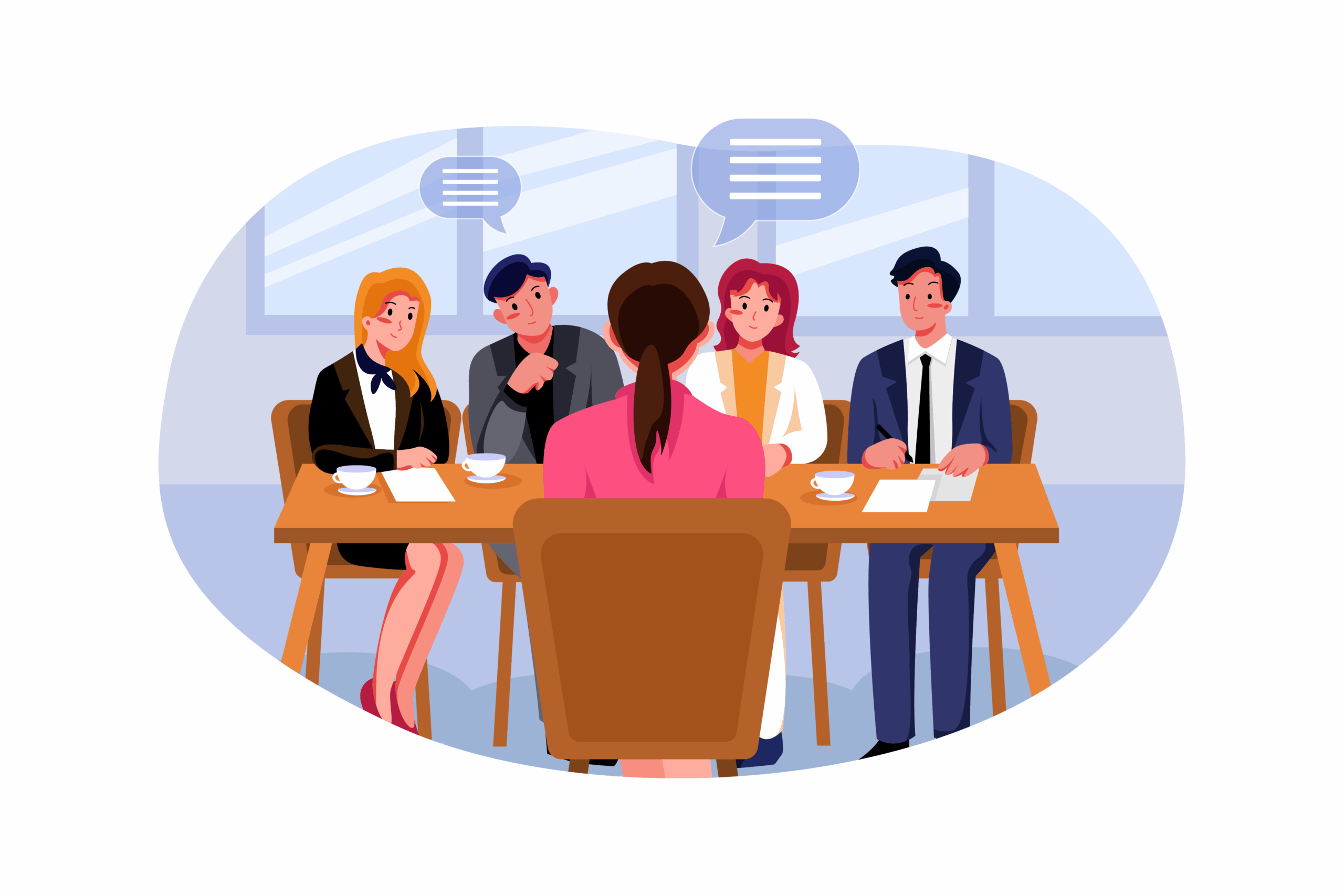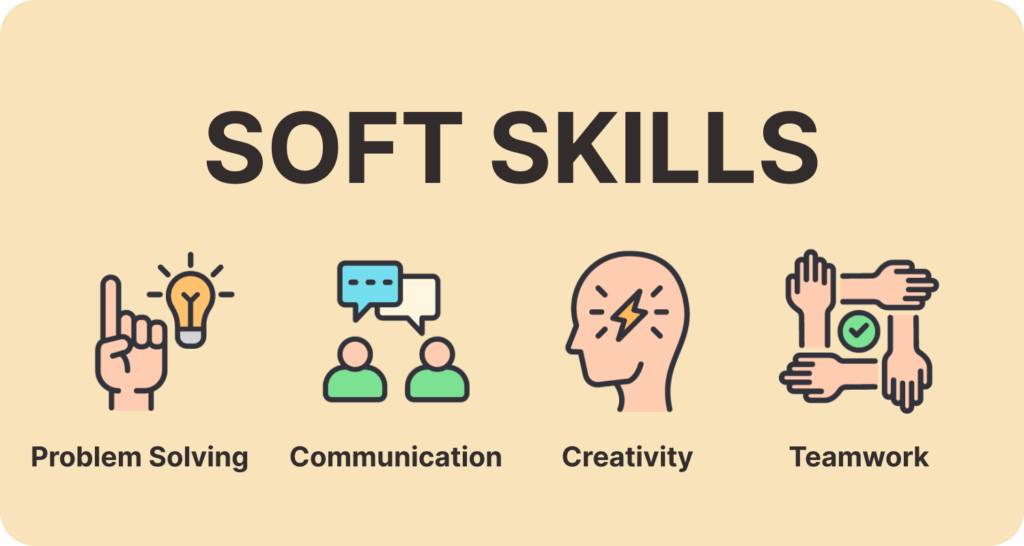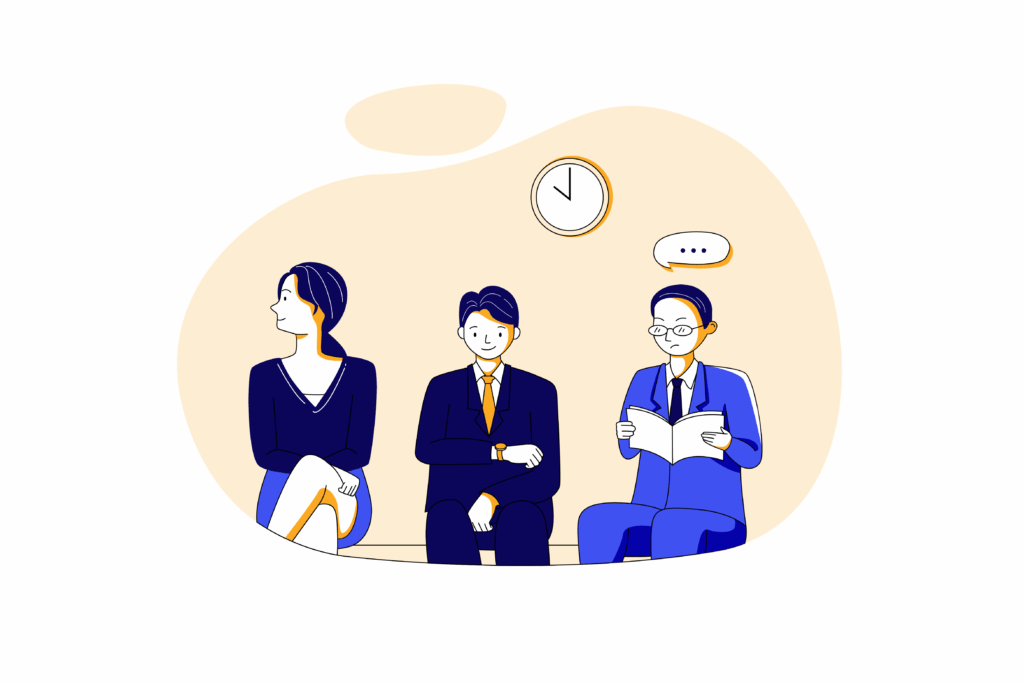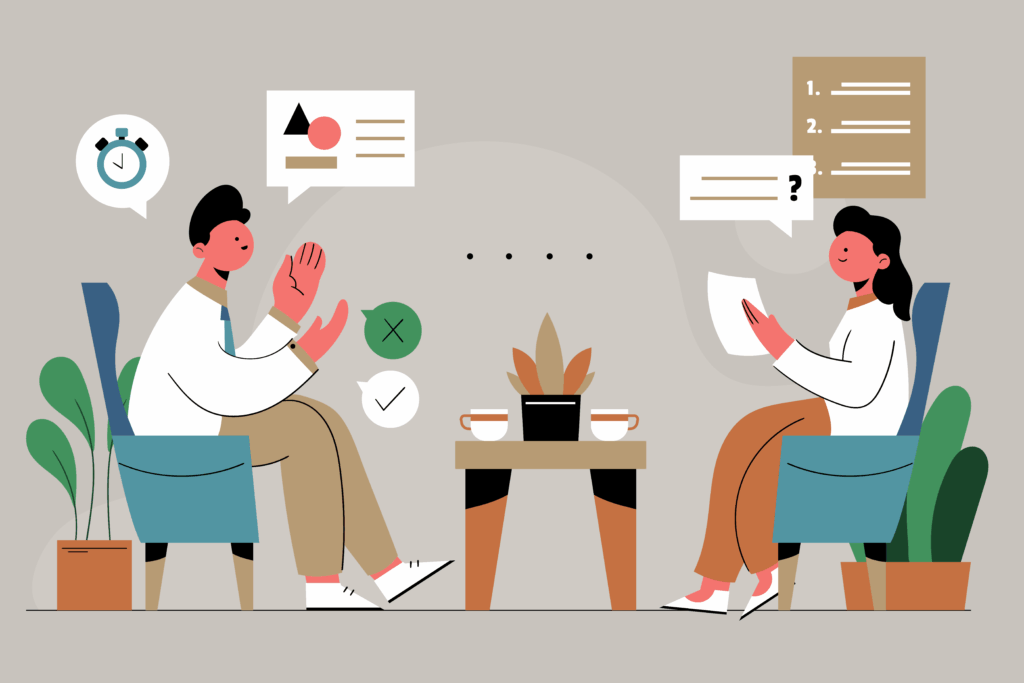- Key Takeaways
- Understanding the Interview Process
- Common Entry-Level Interview Questions and How to Answer Them
- Highlighting Your Education and Experience
- Demonstrating Soft Skills
- Preparing for Behavioral Questions
- Researching the Company
- Asking Thoughtful Questions
- Following Up After the Interview
- Frequently Asked Questions
- Most Importantly, Stay Positive
Worried about your upcoming job interview? This guide will help you learn how to nail your next entry level interview by outlining common entry-level job interview questions and providing essential tips to boost your confidence, answer questions effectively, and impress employers.
Key Takeaways
- Make a strong first impression by showcasing your skills, enthusiasm, and cultural fit for the company.
- Prepare yourself to answer common questions for an entry level interview.
- Structure your answers using the STAR method to highlight your experiences effectively.
- Research the company beforehand, ask thoughtful questions during the interview, and follow up afterward to reinforce your interest.
Understanding the Interview Process

The hiring process for entry-level positions can be a rigorous journey. Creating a strong first impression is vital as you’ll often compete with candidates having similar qualifications. Hiring managers are looking for individuals who not only have the right skills but also fit well within the company’s culture and values. This means that your enthusiasm for the specific role and company can make a significant difference.
Candidates usually find entry-level job openings via job boards, online listings, and job fairs. The first interview offers a chance to demonstrate why you’re the best fit. This involves:
- Answering a variety of common interview questions effectively
- Demonstrating how your background aligns with the role
- Showing your genuine interest in the company.
Remember, hiring a full-time employee is riskier than hiring an intern, so you need to convince the interviewer that you’re committed and a perfect match for the job.
Common Entry-Level Interview Questions and How to Answer Them

Common interview questions are designed to gauge your fit for the position and your enthusiasm for the role. These interview question often include “Tell me about yourself,” “What are your strengths and weaknesses?” and “Why do you want this job?” Answering these questions with confidence, honesty, and awareness of how your responses align with the job and company culture is key.
Here’s how to effectively tackle each of these tips answer questions.
“Tell me about yourself.”
When an interviewer asks, “Tell me about yourself,” they want to hear a concise narrative that highlights your education, experiences, and how they have shaped your career aspirations. Start with a brief overview of your background, mention your major, and discuss relevant internships or projects.
This is your opportunity to set the interview’s tone and make a strong impression.
“What are your strengths and weaknesses?”
Discussing your strengths and weaknesses can feel like a balancing act. Present your strengths with specific examples from your school academic or work experiences to make them more convincing.
When talking about weaknesses, be honest but strategic. Choose a real weakness and explain the steps you’re taking to improve it. This demonstrates self-awareness and a commitment to personal growth.
“Why do you want this job?”
This is your chance to convey how your personal and professional goals align with the company’s objectives and values. Highlight your passion for the industry, your desire to contribute to the company’s success, and how your skills and experiences make you an ideal fit for the role.
Highlight your passion and dedication, and mention any unique qualifications that distinguish you.
Highlighting Your Education and Experience
Your education and experience are the bedrock of your qualifications. Connecting your academic background and relevant experiences to the job you’re applying for is crucial. This not only demonstrates your qualifications but also shows that you’ve thoughtfully considered how your past experiences prepare you for this role.
Here’s how to tailor your resume, leverage internships, and effectively showcase transferable skills.
Tailoring Your Resume
Tailoring your resume for each job application can make your qualifications stand out. Incorporate keywords from the job posting to enhance visibility and appeal to hiring managers and applicant tracking systems. Emphasize experiences that directly correspond with the job description, making it clear why you’re a strong candidate for this specific role.
Leveraging Internships
Internships are invaluable in preparing you for a full-time role. Highlight the specific skills and lessons learned during your internships to showcase your readiness.
Highlight your contributions and measurable results achieved during these roles to demonstrate your advance preparedness for the professional world.
Showcasing Transferable Skills
Transferable skills are essential as they apply across various roles and industries. To align your experiences with job requirements, consider the following:
- Identify how your experiences align with the job requirements.
- Emphasize skills like communication.
- Highlight teamwork abilities.
- Showcase problem-solving skills.
The STAR method (Situation, Task, Action, Result) can help you effectively structure your experiences in certain situations.
Demonstrating Soft Skills

Soft skills are becoming increasingly important in entry-level roles. They affect teamwork, communication, and problem-solving, making them crucial for a productive work environment.
Here’s how to effectively demonstrate your communication skills, teamwork abilities, and problem-solving prowess.
Communication Skills
Effective communication in the workplace involves knowing how and when to express ideas or concerns. Showcase your communication skills during the interview by actively listen carefully and responding appropriately.
Use clear examples from past experiences to illustrate your ability to spend communicate effectively.
Teamwork and Collaboration
Collaboration is essential in a team setting. Illustrate your collaborative efforts and effective communication within the team when discussing teamwork.
Provide specific examples of past team projects to demonstrate your ability to work well with others.
Problem-Solving Abilities
Use real-life examples that highlight critical thinking and initiative to effectively demonstrate your problem-solving skills. For each example, explain:
- The problem or challenge faced.
- Your thought process in analyzing the situation.
- The specific steps you took to reach a solution.
- The outcome or result of your actions.
This approach will showcase your problem-solving abilities clearly and effectively.
Preparing for Behavioral Questions

Behavioral questions are designed to assess how you’ve handled situations in the past, providing insight into your future performance. The STAR method helps structure your answers effectively by focusing on:
- Situation
- Task
- Action
- Result
This method showcases your analytical skills and problem-solving abilities.
Here’s how to prepare for questions about conflict resolution, leadership potential, and adaptability, ensuring your preparation leaves you well prepared.
Conflict Resolution
Prepare to discuss scenarios involving conflict, difficulties with supervisors or peers, and leadership opportunities for conflict resolution questions.
Emphasize taking responsibility and learning from the situation to showcase your conflict resolution skills.
Leadership Potential
Leadership potential is often assessed by interviewers to gauge how well you can contribute to team dynamics and drive projects forward. Discuss roles in student government, clubs, or team projects to showcase your leadership role experiences and ability to lead others.
Adaptability and Flexibility
Adaptability and flexibility are crucial traits for potential employees, signifying your willingness to handle change and unexpected challenges effectively, making you a good fit. The benefits of these traits are significant in today’s dynamic human resources work environment.
Discuss tough decisions to demonstrate your reasoning ability and adaptability.
Researching the Company
Researching the company before an interview is crucial as it allows you to tailor your responses to align with the company’s culture and values. To enhance your interview performance, familiarize yourself with:
- The company’s mission
- The company’s values
- The company’s history
- Recent developments within the company
Here’s how to effectively utilize company resources, understand the role, and align with company culture.
Utilizing Company Resources
Company websites often have sections like ‘About Us’ and ‘Careers’ that provide essential information for potential candidates. To gather information about the company, you can:
- Review the ‘About Us’ section to learn about the company’s mission and values.
- Check the ‘Careers’ section for insights into company culture and job opportunities.
- Look for recent developments or news updates on the website to stay informed about the company’s latest activities.
Understanding the Role
A job description usually outlines the essential qualifications and skills a person needs to fill jobs describe knowledge to possess.
Ask about specific tasks and daily responsibilities to clearly understand what is expected in the role.
Aligning with Company Culture
Researching the companies’ social media profiles can provide insights into its values and recent developments, offering a valuable opinion on its public image.
During the interview, express shared values to demonstrate your fit for the company culture.
Asking Thoughtful Questions
Thoughtful questions during the interviewing showcase your interest in the role and the company. Turn the interview into a conversation by asking follow-up questions and engaging with the interviewer.
Here’s how to ask questions about the role, the team, and career growth.
Questions About the Role
Inquiring about day-to-day responsibilities shows your genuine interesting interest in the role and helps you gauge alignment with your career goals.
Ask questions to understand the expectations and priorities of the role you expect.
Questions About the Team
Team dynamics and collaboration are crucial for fostering a productive and positive work environment, as how the team interacts within the organization truly matters in business.
Inquire about team dynamics to see if the work environment aligns with your preferences.
Questions About Career Growth
Asking about professional development opportunities shows that you are proactive and invested in your growth within the company. Ask about training programs, mentorship initiatives, and potential career paths to understand how the company supports employee growth.
Following Up After the Interview

Following up after an interview shows enthusiasm and professionalism, reinforcing your interest in the position. Follow up strategically, especially if you haven’t heard back within the expected timeframe.
Here’s how to send a thank-you note, reflect on the interview, and balance patience with persistence.
Sending a Thank-You Note
Send a personalized thank-you note within 24 hours of the interview to express gratitude and reiterate your interest.
Reference specific parts of the interview to show genuine focus engagement.
Reflecting on the Interview
Evaluating your interview performance means recognizing both strengths and areas needing improvement to enhance future interviews. Immediate self-reflection after the interview is crucial for assessing performance and understanding how to improve for future opportunities.
Staying Patient and Persistent
Maintaining communication with potential employers should be done cautiously, possibly avoiding excessive follow-ups that may appear desperate. Balancing persistence with hope and patience improves your chances without appearing overly eager to an employer, as some may be afraid of seeming too pushy.
This approach ensures you remain professional and respectful of the hiring process while demonstrating your continued interest in the position.
Frequently Asked Questions
How should I answer the “Tell me about yourself” question?
Start with a quick overview of your background, education, and relevant experiences, then connect those to your career goals. This way, you create a clear narrative that shows who you are and where you’re headed.
What’s the best way to discuss my weaknesses in an interview?
Be honest but strategic by selecting a genuine weakness and sharing how you’re actively working to improve it. This approach demonstrates self-awareness and a commitment to personal growth, which interviewers value.
How can I make my resume stand out to hiring managers?
To make your resume stand out, tailor it for each job by using keywords from the listing and highlighting relevant experiences that align with the job description. This targeted approach shows hiring managers that you’re a great fit for their needs!
Why is researching the company important before an interview?
Researching the company is crucial because it helps you tailor your answers to reflect their culture and values, showing you genuinely care about the role. Plus, it sets you apart as a candidate who is truly invested.
How should I follow up after an interview?
A personalized thank-you note within 24 hours is a must to express gratitude and reaffirm your interest. Just be sure to follow up with patience to keep it professional.
Most Importantly, Stay Positive
Navigating the interview process as a recent graduate can be daunting, but with the right preparation, you can make a strong impression. Understanding the interview process, mastering common questions, highlighting your education and experience, and showcasing your soft skills are all crucial steps toward success. Remember, your goal is to demonstrate how your background and skills make you the perfect fit for the role and the company.
In summary, effective interview preparation involves thorough research, thoughtful self-reflection, and strategic communication. By following the tips and strategies outlined in this guide, you’ll be well-equipped to tackle entry-level interviews with confidence. Good luck, and may your efforts lead you to the career of your dreams!


